
Recently I’ve been asked by landlords with units in condo towers to compile a list of concerns they’d like their tenants to know about their rental properties. They asked for this with an eye towards reducing maintenance costs and equipment replacement costs. The list was supposed to be short and sweet but there is a lot to know about modern condominiums.
Do your tenants know how to shut the water off?
This is critical. This is what inspired the post. Many modern renters do not even know how to turn the water off to the unit in an emergency. Appliances leak and washing machines in particular can agitate the hoses off the feed pipes. Condo drains are notorious for clogging and every tenant should have a sink basket to catch food particles.
Turning off the water to the condo should be a simple process of turning a valve. Tenants should not be scared to do this, and this is good practice as they might need to turn it off in an emergency situation. All adults living at a house should be okay with turning on / off the water and power to the unit.
That being said, the main shutoff could be almost anywhere, especially in older buildings which have been converted from other uses. In the mixed-use building where some of my clients have offices, the master shutoffs to individual residential apartments are above the dropped ceilings in the corridors outside the apartments. Who knew? We spent twenty minutes searching.
If the master shutoff valve isn’t in an obvious location, you may have to trace the path of the cold water supply pipes serving your apartment
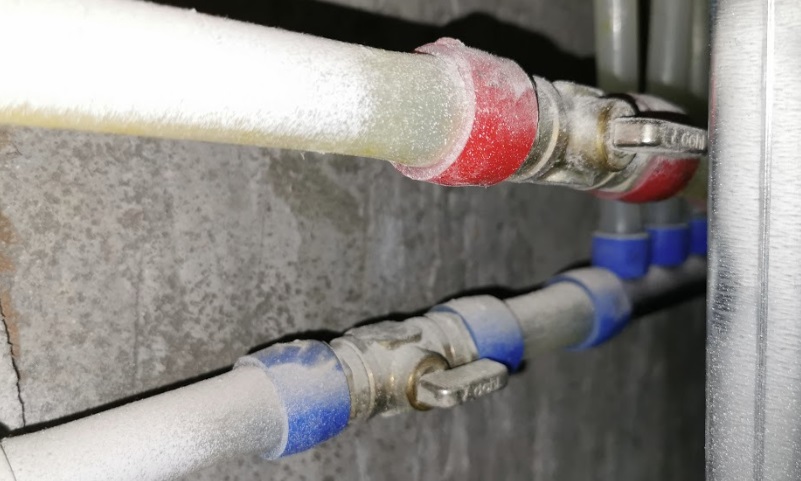
The main hot and cold water pipes with shut-off valves in a modern condo unit.
Do your tenants know there is a fan coil with a filter heating and cooling the unit?
A fan coil unit (FCU) is a relatively new heating and cooling system / device that uses a coil and a fan to heat or cool a room without connecting to duct work. Indoor air moves over the coil, which heats or cools the air before pushing it back out into the room.
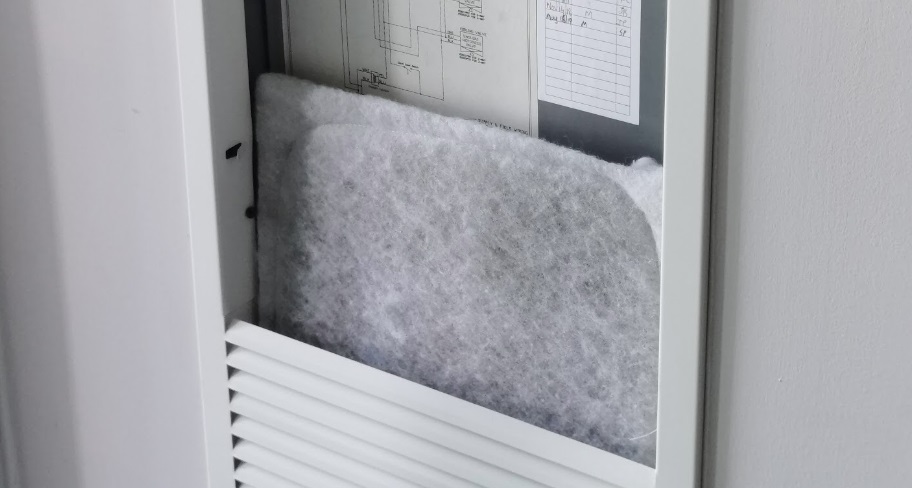
This is what a clean fan coil filter looks like in a new condo unit.
In newer buildings with a central heating/AC system, fan coils may be located behind a panel in the wall of one or two rooms in each suite along with the thermostat. At the bottom, there is an air filter with the in-vent and above is the motor for the fan and coil with a pan under to prevent condensation from dripping.
The fan coil should be serviced every 3-6 months. Maintenance of the fan coil is carried out by a certified contractor, often a plumber, or by the same contractor who has the contract to maintain a building’s large systems. The contractor removes the filter and changes it. Then he vacuums the system, lubricates it, checks for leakages and the general functioning, including the thermostat.
Tenants need to be aware that on the day the service teams go through the building they will enter the unit and if you are not home a security guard will watch as they do this work. If you have furniture piled in front of the panel they will not move it. The tenant will be charged for a second attempt. ($100).
These units run on water. They require hot water for heat and cold water is used for cooling. The reason why you cannot have air conditioning year-round is because the building’s chiller is only turned on during the summer. Reminder: Because they use water, fan coil units can freeze! If your AC unit is located near a door or window then please ensure to never leave the door or window open during the winter as the water pipes inside the FCU can burst!
There are some electrical concerns that the tenants should manage in condos.
If your condo is new, have a look at the outlets and if they have a “TR” symbol they will be tamper resistant and child proof and so there’s no need for additional child protectors. Many times we see new families take this unnecessary precaution in new condo units.
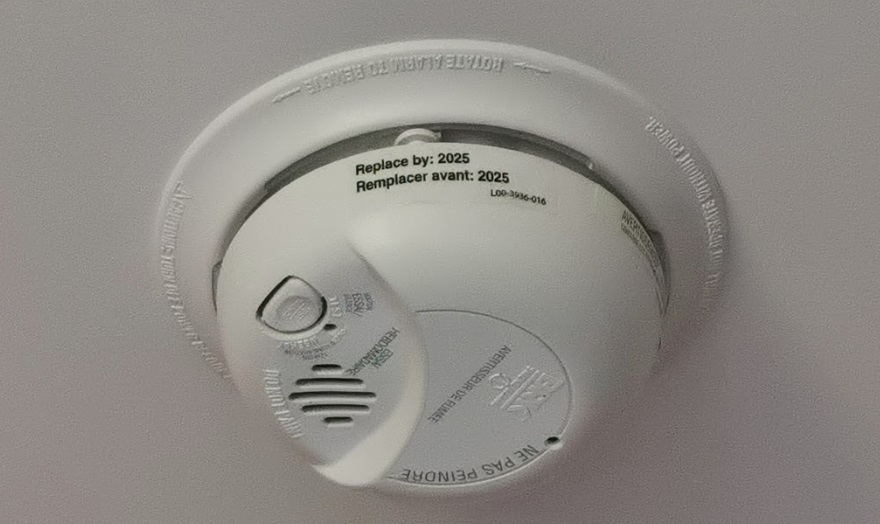
Tenants, please be aware that smoke detectors themselves have an expiry date.
Smoke detectors are required in every modern condominium and in addition to their batteries these units themselves have an expiry date and need to be replaced at the designated time. The majority of condominiums do not need carbon monoxide (CO) detectors as there’s nothing in the unit that can produce the pollutant. No combustion happens in modern condos to make the exhaust.
Tenants should also know how to turn off the power to the condo unit, for obvious reasons. The electrical panel is typically located in the bedroom or in the front closet. This is where each circuit of the condo’s electrical wiring circles back to and from where power can be controlled throughout the unit. If the ‘fuse box’ is older then it will likely have ARC fault breakers that should be tested monthly by pressing “TEST”.
GFCI outlets (ground fault circuit interrupter) are also important pieces of technology for tenants to understand. These special electrical outlets are installed close to any water source (bathroom and kitchen). These electrical outlets protect residents from electrocution. This is an important safety component and it has saved countless lives. They need to be tested every thirty days to ensure they still function properly. Do you have a switch in your living room that doesn’t do anything? It could be a switched outlet. The switch could control the outlet so that you can plug in a lamp and control it with the switch.
Tenants need to take care of appliances which are perishable pieces of equipment.
Dryer lint traps must be cleaned after every use, secondary lint traps are to cleaned every three loads.
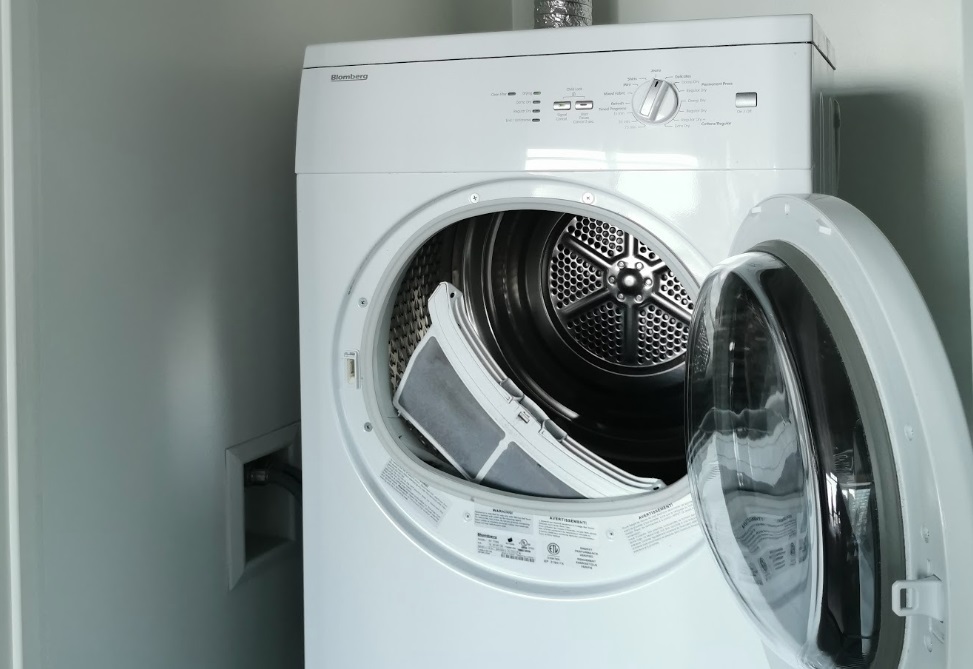
Modern vertical washing machine is a common source of leaks and floods.
When it come to the washing machine, the rubber hose lines that lead to and from the washing machine need to be replaced every 3-5 years. It is always recommended tp change them to metal braided lines as the rubber hoses under constant pressure, over time, will degrade and burst. This can cause extreme water damage in the unit and the condo units below.
Tenants should get in the habit of leaving the door open and slightly ajar after they’re done laundry to prevent mold and mildew growth inside the barrel. Depending on the machine, the lint trap needs to be cleaned out through access panel at the bottom of the front opening.
Range hood filters should be cleaned whenever they get dirty. We typically soak the surface in dish soap and then clean it with paper towels to get rid of all the oil.
The refrigerator? The coils on the back of the fridge should be cleaned to avoid the cooler overheating.
Do your tenants know how to change the dishwasher filter?
All dishwashers will have one or more filters to remove food particles from the wash water during the cycle. These filters are typically self-cleaning, but under certain water conditions or detergent usage these filters can become clogged.
To access the dishwasher filter, remove your lower dish rack to expose the bottom of your dishwasher. You can find the filter in a back corner of the tub bottom, or around the base of the bottom spray arm. Some dishwashers have a triple filter system with two parts: an upper filter assembly and a lower filter.
Bathroom
Water shut offs for the entire unit are usually located under the vanity cabinet in the bathroom that’s closest to the front door.
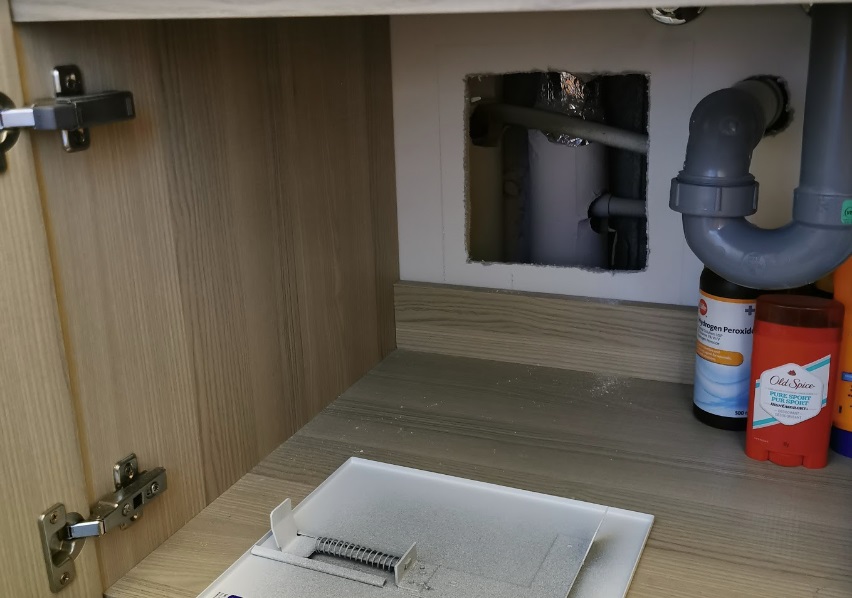
Bathroom exhaust fans? Tenants should use the exhaust fan after every shower to ensure that all residual moisture is vented out and mold / mildew does not grow around the tub. The exhaust fan switch can be changed by an electrician to a timer or a humidity sensor for easy use.

Recent Comments